Pop culture is about to undergo another cyclical changing of the guard. Three of the most important brands of the past decade are all due to reach natural stopping points this year. The stories will carry on but this exact cultural moment will never be quite the same. However, isn't there always something new just around the corner?
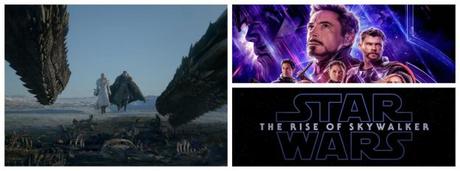
Three of pop culture's biggest pillars - Game of Thrones, Marvel & Star Wars - will say a partial goodbye in 2019. A song of ice and fire will reach its final bloody chorus. Superheroes will die for good as the Avengers enter their endgame. (Better start planning your Captain America eulogy.) A far away galaxy will finally untether itself from the Skywalker family.
They will all continue on in their own way, but the stories they've been telling to this point are about to end or at least transition into a radically new phase. It's enough to turn any fan wistful and any cultural commentator into a soothsayer. "There will never be anything else like this" has become a common refrain about all three. Which, fair. For so many reasons - fracturing audiences, shaky new leaderships, unfettered conglomeration - history will never again see anything quite like these three separate phenomenons.
How Game of Thrones Came To Be & Why It Might Never Happen AgainHBO's new corporate overlord AT&T, for example, is unlikely to ever authorize a massive delay and expensive refilming of a big budget pilot, not when the streaming wars demand more and more and more content without delay. Yet, that's exactly what departing HBO head Richard Plepler authorized with Game of Thrones a decade ago. His faith helped turn a troubled project into a success, and his replacement might not be granted such leeway.
The current state of play in Hollywood in the streaming era is full of similar new roadblocks - all of them standing in the way of the next major phenomenon ever breaking through at the level of a Game of Thrones. However, are we underestimating pop culture's capacity to surprise and captivate? Every "there never will be anything else like this" pop culture moments tends to eventually lead to another similar, but different phenomenon.
After Harry Potter, we never thought we'd get to watch fantasy series characters grow into adults before our very eyes under a worldwide magnifying glass, yet here we are looking at Sophie Turner and Maisie Williams as a grown woman protecting Winterfell in Game of Thrones ' season 8 premiere. Not so long ago, they were but mere children.
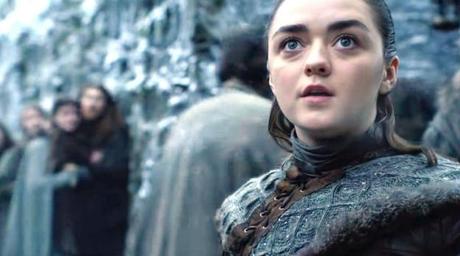
Not that the two franchises are remotely similar. (When was the last time Hermione assassinated an entire family or fed an enemy to the dogs?) However, each new pop culture phenomenon informs the next, and what Harry Potter managed to do it with its kid actors told the Game of Thrones people they could do the same thing with the right casting. (See also: The Stranger Things kids growing into teenagers in front of us.)
Crucially, though, what allowed HBO to realize that particular dream with Game of Thrones was not a desire to make their own Harry Potter or Lord of the Rings. To hear the networks' then-programming president Michael Lombardo tell it, Game of Thrones was greenlit as a risky bet on two promising storytellers.
"It was 2008. We had this pilot script, and we were budgeting it and scratching our heads over whether we should greenlight this," Lombardo recently told EW. An adult fantasy show had never worked before, Game of Thrones was going to be insanely expensive, neither David Benioff or D.B. Weiss had run a show before, and what they were proposing was completely counter to HBO's programming strategy to that point.
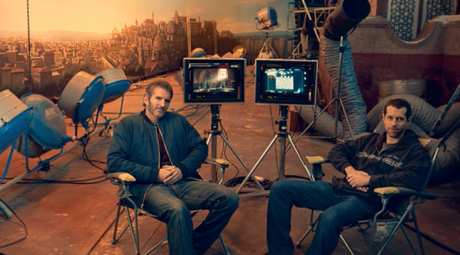
"I see Dan on one of the bicycles [at my gym]. He was reading this dog-eared copy of the first book. And it had underscores and yellow highlights on the pages. And he did not know I saw him. I thought, 'We're going to figure this out. These guys breathe this show in a way that doesn't happen all the time.' I found that window into Dan in that quiet moment, that this is what he was doing in his free time. It made me determined to figure this thing out."
There's likely a bit of old-fashioned Hollywood myth-making baked into that anecdote - HBO's various department heads probably had a lot to do with the greenlight decision - but it speaks to how often the next big thing in pop culture first requires someone in leadership to take a leap of faith on something unproven. (See also: Shawn Levy taking a chance on The Duffer Brothers for Stranger Things.)
The Likely Failure of Those Searching for "The Next Game of Thrones"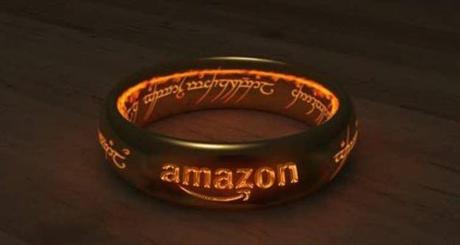
Amazon shelling out over $200 million to make a Lord of the Rings TV series is the antithesis of that. Instead, it's as naked an attempt to outspend the competition on the way to creating your own Game of Thrones as you can find. The thinking is obvious - if George R.R. Martin stole from Tolkien, why not skip the middleman and go back to the source? Ask film producers of the late 70s and early 80s how often their attempts to create their own Star Wars actually worked out.
Stories like that abound around Hollywood right now. Each premium cable network and streamer wants its own Game of Thrones - not necessarily a big budget fantasy series but the kind of headline-grabbing series which can anchor a night and steadily attract new subscribers. Netflix has been at that game for years, lest we forget their big-budget Marco Polo show no one watched. Starz kind of has that with Outlander. Other competitors are still trying in vain, which is why a Halo TV series is going to end up on Showtime for some reason.
Naturally, HBO is developing a thousand Game of Thrones spin-offs, with a prequel series far enough along it will begin filming its pilot in a couple of months. WB's ongoing challenges with its Harry Potter prequel movies illustrate how difficult it is to recapture the old magic, but on the flipside, an all-time great like Breaking Bad has now been succeeded by an equally brilliant prequel ( Better Call Saul.)
Whatever comes next will be unlikely to ever match the scale and pop culture reach of what we've already seen. However, at one point experts would have scoffed at the idea that in 2019 a scripted episodic TV show could still inspire people to host viewing parties, yet that's exactly what happened last night with Game of Thrones. Due to the changes in the way we consume TV and Netflix's radical transformation of everything entertainment over just the past 5 years, this might be the last of a dying breed - the last true scripted watercooler show.
But Damon Lindelof's Watchmen could blow us away.
Stranger Things: Season 3 might remind the world how much it's missed hanging out with Eleven and the gang.
Or some other show which once started out as "I must be insane to greenlight this, but I believe in you" pitch between storyteller and executive will take a sizable audience by storm.
The Unknowable Next Big Thing"There will never be anything like this," the amended statement should maybe say, "but there's bound to be a bunch of forgettable knock-offs and divisive brand extensions. Rising above all of it, however, will be something we don't see coming."
Part of the fun of being a pop culture fanatic is maintaining the right to be swept away by the next great epic. Our next cosplay options might currently only exist in the mind of some unknown writer somewhere, in a screenwriter's computer, or on the pages of a wildly underappreciated novel series just begging for adaptation.
Much like winter in Westeros, something else is always coming. We just don't know what yet.
Until we get there, my money is on the dragons winning the Game of Thrones and sitting on their own Iron Throne at the end of everything. The humans have mucked everything up for long enough, don't you think?
(No, seriously, Dany's clearly going to win.)
(Except maybe it will be Jon.)
(Or Cersei.)
(Or the people of Westeros will revolt and demand a democratic system, which always goes well in historically authoritarian countries.)
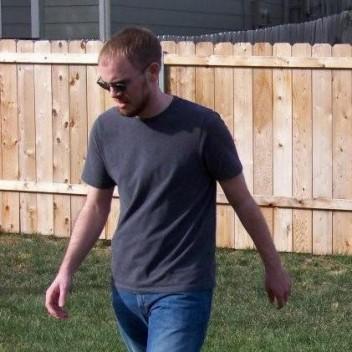
Grew up obsessing over movies and TV shows. Worked in a video store. Minored in film at college because my college didn't offer a film major. Worked in academia for a while. Have been freelance writing and running this blog since 2013. View all posts by Kelly Konda

